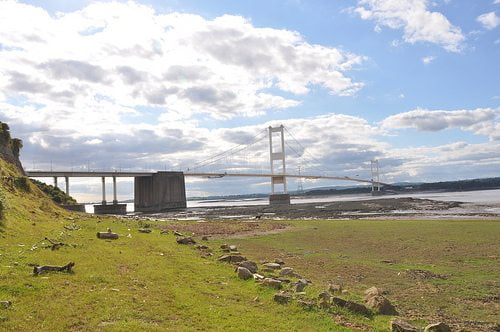

Environment
MPs: Severn barrage no ‘knight in shining armour’ for UK renewables
The construction of a £30 billion tidal barrage across the river Severn might not bring about the environmental and economic advantages it suggests, according to a cross-party group of MPs.
In a report called A Severn Barrage?, the House of Commons energy and climate change committee claim that tidal energy firm Hafren Power – the developer behind the proposed barrage – has not responded to a number of “serious environmental concerns”, including flood risk and the impact on birds, fish and other marine life.
It adds that while the project would inevitably create jobs – some 50,000 according to Hafren – it’s likely that it would also put people out of work in neighbouring ports and local businesses.
However, the committee agreed that the plans would undoubtedly help the UK meet its climate objectives and aid the transition to a limitless clean energy mix.
Committee chair Tim Yeo MP questioned the supposed advantages of the project, and said that more evidence was needed in order to make an informed decision.
“We need innovative solutions to help us meet decarbonisation targets while keeping energy prices as low as possible”, he added.
“Tidal energy is a vast resource which remains largely untapped. However, tidal and marine projects must demonstrate their economic, environmental and technological credentials and their ability to gain stakeholder support.
“The Hafren Power proposal, having failed to achieve this, is no knight in shining armour for UK renewables. The government should consider whether a smaller tidal facility could develop expertise and provide evidence before a decision about scaling up is taken.”
Green campaigners in the region – many of whom have vocally objected to the Severn barrage proposals from day one – have welcomed the energy committee’s investigation and recommendations.
Friends of the Earth’s south-west campaigner Mike Birkin said, “This report should bang the final nail in the coffin for the current Severn barrage proposal. The scheme is not cost effective and has little public support.”
Birkin noted that the committee called for a “more proactive approach” to marine renewables, in a nod towards a report by renewables firm Regen SW and consultants Marine Energy Matters in November.
The pair claimed that a mixture of renewable technologies would bring about more advantages and provide more power to the region than a large-scale tidal barrage.
Hafren say its proposals, which are backed by Labour backbencher Peter Hain, would generate 5% of the UK’s energy. But campaign groups including Friends of the Earth have instead voiced their support of smaller tidal projects like the one at Swansea Bay.
Further reading:
Report highlights clean energy as better alternative to Severn barrage
Glimmer of hope for abandoned Severn barrage project
Severn estuary: the tidal barrage debate continues





























